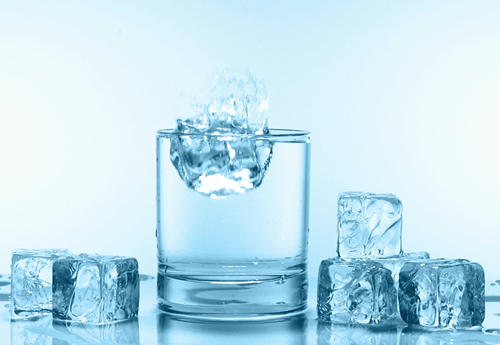Ice water please
 Eddie has a glass of pure water with an ice cube floating in it. If he leaves it until the ice completely melts, what will happen to the surface level? Will it rise, fall, or stay the same?
Eddie has a glass of pure water with an ice cube floating in it. If he leaves it until the ice completely melts, what will happen to the surface level? Will it rise, fall, or stay the same?
Note: Ignore the evaporation of water and assume that the temperature of the water stays constant.
This section requires Javascript.
You are seeing this because something didn't load right. We suggest you, (a) try
refreshing the page, (b) enabling javascript if it is disabled on your browser and,
finally, (c)
loading the
non-javascript version of this page
. We're sorry about the hassle.
The density of liquid water and solid ice are about 1 . 0 g/mL and 0 . 9 g/mL , respectively. As a result when ice floats on water, 90% of its volume is submerged and 10% of its volume stays above the surface. When ice melts and turns into water, its volume shrinks to 1 0 9 its original volume. This volume is equal to the initially submerged volume of the ice cube, and therefore the surface level does not change.